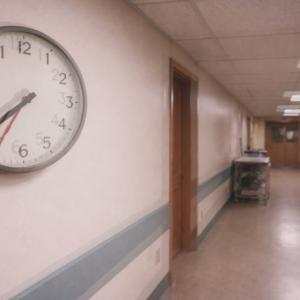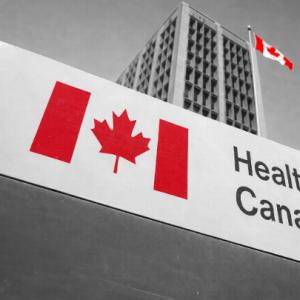Canadians need to talk about cancer screening
Canada’s cancer screening guidelines lag far behind the latest science, and Canadians are paying with their lives.
On March 4th, in response to an external review of independent experts, the Minister of Health paused the work of the Canadian Task Force on Preventive Health Care (Task Force), citing a need to modernize its work. But for too many Canadians, this freeze comes far too late.
The Task Force develops guidelines that inform how Canada’s healthcare providers counsel patients around screening, essentially dictating which groups of Canadians can access which forms of cancer screening.
Australia is on track to eradicate cervical cancer by 2035 due to both innovative screening and mass-vaccination against HPV. In Canada, cervical cancer — which is 99 per cent preventable — is the fastest growing cancer in women, with guidelines that haven’t been updated since 2013.
Rates of colon and breast cancer in those under 50 are also rising. The U.S. has lowered screening ages, but the Task Force hasn’t followed suit. Since the Task Force advised against screening in women 40–49 back in 2011, metastatic breast cancer in women aged 40–59 rose by 10 per cent.
Prostate cancer deaths increased after recommendations not to screen, prompting the U.S. to update guidelines, but the Task Force hasn’t reviewed its own guideline since 2014. For lung cancer screening, the Task Force suggests screening three times and stopping, a nonsensical practice not seen in provincial programs.
The Task Force needs to change. While it plays a crucial role in shaping national standards, its governance structure and practices are hindering the development of timely, rigorous, and inclusive guidelines. It needs to evolve to prioritize transparency, accountability, and a broader evidence-based approach to address health disparities and better support our underserved communities. The Task Force must move away from its current paternalistic approach, prioritize self-referral and empower patients to make informed health decisions in this time of primary care crisis.
Adequate funding is key for The Task Force to fulfil its mandate. Currently, members are volunteers, limiting potential applicants and the time they can contribute. A reliance on volunteerism impairs the Task Force’s ability to update guidelines promptly, and can lead to a lack of diversity in both thought and expertise, fostering ideological homogeneity.
Subject matter experts are perceived by the Task Force to have “financial and intellectual conflicts,” and are not embedded in guideline development in any meaningful way. The 2018 breast screening guidelines were made by two kidney doctors, a gastrointestinal doctor, psychologist, nurse and family doctors. Canadians should be shocked by the Task Force’s willful exclusion of those who know most about the subject at hand.
Limited expert involvement does not permit voting, and expert reviewers cannot remove their names if they disagree with the guidelines. The result: reluctance by experts to collaborate, and guidelines overly influenced by outdated data, or containing blatant errors.
The 2018 breast screening guidelines vastly underestimated the number of breast cancers in women in their 40s and grossly inflated the overdiagnosis rate. The Task Force led us to believe that half of all breast cancers in women 40–49 would never cause a problem for these women — a dangerously inaccurate conclusion.
The fragmentation of cancer guidelines in Canada only adds to the confusion. Multiple, often contradictory guidelines from different medical specialties make it hard for providers to know which to follow. A unified, collaborative set of national guidelines, with clear recommendations tailored to primary care, specialists, and patients, would reduce disparities across provinces. This should not be a primary care versus specialist debate, but a collaborative process.
Current practices involve the Task Force funding and overseeing “external” systematic reviews to inform its guidelines, even down to the publication costs for manuscripts resulting from these reviews. This gives the Task Force complete veto power over the scope, framing, and outcomes of the reviews, effectively controlling the direction of the research and its final recommendations.
Finally, the evidence base used to develop guidelines must evolve. We can no longer rely on outdated randomized controlled trials — as old as the 1960s and ‘70s — that don’t reflect current medical practices. Given that it is unethical to withhold proven interventions, new RCTs on screening issues will be limited. Instead, we must embrace Evidence Based Medicine-Plus principles, incorporating observational studies, ecological data, cancer registry data and modeling.
New endpoints for benefit beyond mortality, such as cancer stage and interval cancers can provide more timely insights into the effectiveness of health interventions. To make sure evidence is based on the most comprehensive data, we must invest in the national and provincial cancer registries and health system databases.
Our current cancer screening guidelines are entrenched in the past, driving geographic and racial health disparities, and impacting cancer outcomes. The upcoming external review report is an opportunity to develop forward-thinking processes prioritizing a broader range of evidence, transparency, accountability, and inclusivity.
We must leverage Canadian expertise to meet the needs of our diverse population and rising cancer incidence, reduce barriers to care, and improve health equity and outcomes.
---
Anna N. Wilkinson, MSc., MD, CCFP, FCFP is a GP Oncologist at the Ottawa Hospital, Associate Professor in the Department of Family Medicine, University of Ottawa, and a Family Physician.








